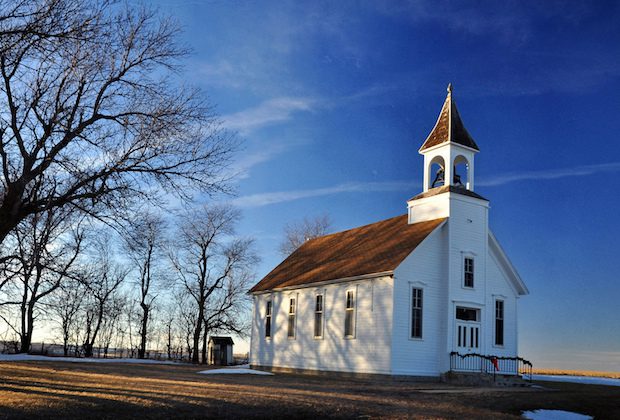Their Losing Religion = Our Losing Religious Freedom

On the one hand, as I said yesterday, I think Russell Moore is not wrong to express optimism that the falling-away of nominal Christians documented by the Pew survey can be seen as a moment of clarity and hope for the church. Moore wrote yesterday:
Christianity isn’t normal anymore, and that’s good news. The Book of Acts, like the Gospels before it, shows us that the Christianity thrives when it is, as Kierkegaard put it, a sign of contradiction. Only a strange gospel can differentiate itself from the worlds we construct. But the strange, freakish, foolish old gospel is what God uses to save people and to resurrect churches (1 Cor. 1:20-22).
We do not have more atheists in America. We have more honest atheists in America. Again, that’s good news. The gospel comes to sinners, not to the righteous. It is easier to speak a gospel to the lost than it is to speak a gospel to the kind-of-saved. And what those honest atheists grapple with, is what every sinner grapples with, burdened consciences that point to judgment. Our calling is to bear witness.
We don’t have Mayberry anymore, if we ever did. Good. Mayberry leads to hell just as surely as Gomorrah does. But Christianity didn’t come from Mayberry in the first place, but from a Roman Empire hostile to the core to the idea of a crucified and resurrected Messiah. We’ve been on the wrong side of history since Rome, and it was enough to turn the world upside down.
He’s right about this. I need Russell Moore whispering in my ear every day! On the other hand, Mark Movsesian is surely right too in his comments on the Pew survey:
Finally, it’s hard to see how the rise of the Nones is good for religious freedom. As people check out of organized religion, they are less likely to view it as important and worthy of protection. People with even marginal affiliations may still understand and endorse the importance of religious commitment. The fact that they affiliate at all shows that religion makes up at least some part of their identity. Once people cut their ties completely, however, they are much less likely to be sympathetic to religious communities. If the future of religious freedom depends on the ability of believers to persuade our fellow citizens that faith commitments deserve respect and protection, that task may well become more difficult in the years ahead.
Christianity is going to cost us something in the near future, and for the foreseeable future. This can be the seed of a greater faith, and I hope it is. But I also hope that Christians don’t underestimate the difficulty of the road ahead. As I keep saying, these are not normal times, and things we have always been able to take for granted are going to erode badly, even disappear. Prepare.
Subscribe for as little as $5/mo to start commenting on Rod’s blog.